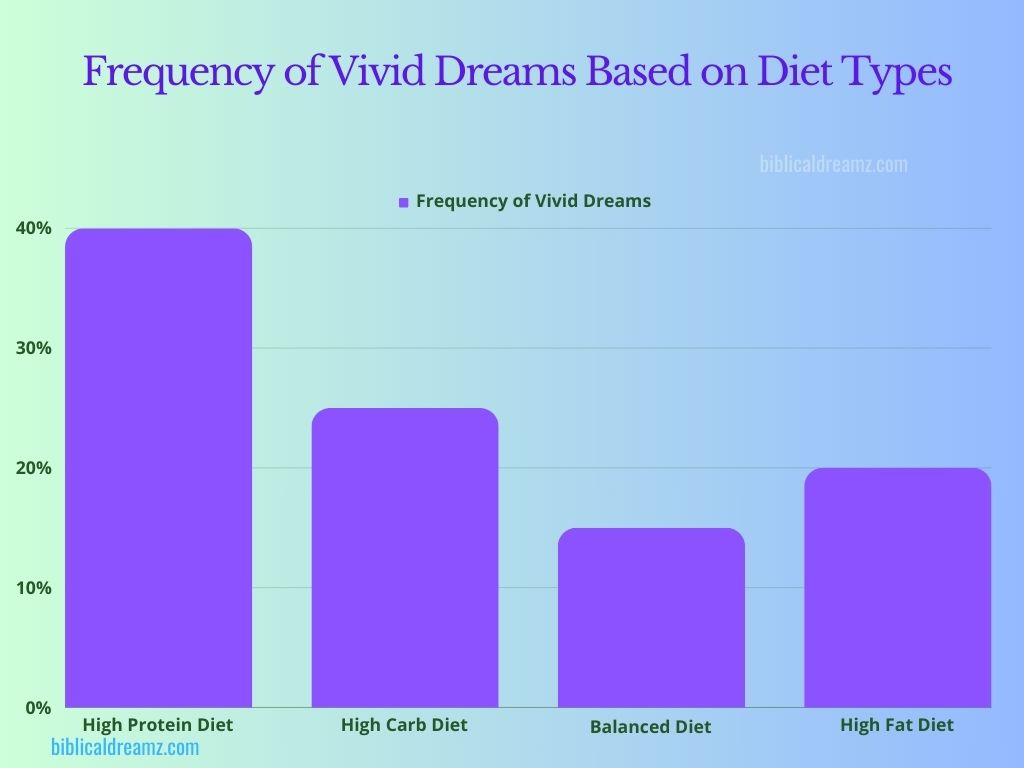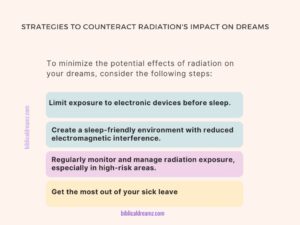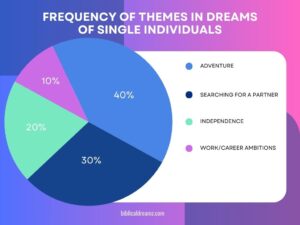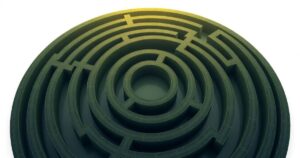The Surprising Link Between Food and Sleep
Have you ever woken up from a bizarre dream and wondered if something you ate might be to blame? Surprisingly, research suggests that your diet can indeed influence the content and quality of your dreams.

Certain foods and eating habits may lead to more vivid, emotional, or downright strange dreams, while others can promote more peaceful slumber. Read on to discover the fascinating ways nutrition shapes your nightly adventures.
Key Takeaways
- Eating close to bedtime, especially heavy meals high in saturated fat, sugar, and spice, can disrupt sleep and trigger more disturbing dreams
- Foods rich in vitamin B6, like fish, poultry, potatoes, and bananas, may enhance dream vividness and recall due to their role in serotonin production
- Tryptophan-containing foods like dairy, nuts, and seeds can promote sleepiness but may also cause memorable dreams
- Fasting or following plant-based, high-fiber diets is associated with better sleep and more positive dream content compared to diets high in processed foods
Related: The Impact of Financial Status on Your Dreams
The Science of Sleep and Dreams
Before diving into the dietary factors, it’s helpful to understand a bit about the biology of sleep and dreams. Sleep occurs in cycles throughout the night, with each cycle divided into distinct stages. Most dreaming happens during the Rapid Eye Movement (REM) stage, characterized by heightened brain activity, temporary muscle paralysis, and quick movements of the eyes beneath closed lids [1].
Dreams are essentially stories and imagery the brain creates during sleep, often incorporating elements of waking life alongside fantasy. While the exact purpose of dreams remains a mystery, experts believe they play a role in memory consolidation, emotional regulation, and problem-solving.
Several factors can influence dreams, including stress, medications, sleep disorders, and of course, diet. Certain foods and nutrients seem particularly prone to altering dream content and recall. Let’s explore some of the most intriguing connections researchers have uncovered.
Get instant dream insights with our Free Dream Interpretation App
The Connection Between Diet and Dreams
Your diet plays a crucial role in your overall health, and it extends its influence to the world of your dreams. Certain foods can impact the quality of your sleep and, consequently, your dreaming patterns.
For instance, spicy or heavy meals consumed close to bedtime may lead to discomfort and restless sleep, potentially leading to more vivid or disturbing dreams.
Nutrient | Foods Containing It | Impact on Sleep | Possible Effect on Dreams |
|---|---|---|---|
Tryptophan | Turkey, Chicken, Cheese | Promotes sleepiness | May lead to more calming dreams |
Magnesium | Almonds, Spinach, Avocado | Enhances sleep quality | Can contribute to deeper, more restful sleep |
Vitamin B6 | Fish, Potatoes, Bananas | Aids in melatonin production | Linked to vivid and memorable dreams |
Spicy Components | Hot Peppers, Salsa | Can cause indigestion | Often associated with intense or bizarre dreams |
Beware of Bedtime Snacks
One of the simplest ways food can impact dreams is by disrupting sleep itself. Eating too close to bedtime, especially large meals high in fat and protein, can lead to indigestion and acid reflux, making it harder to fall and stay asleep.
This effect is compounded by lying down, which allows stomach acid to flow back into the esophagus more easily.
Spicy dishes can be particularly problematic. Capsaicin, the compound that gives peppers their heat, may elevate body temperature and cause sleep-disrupting heartburn. One study found that eating Tabasco sauce and mustard with an evening meal led to more disturbed sleep and bizarre dreams [4].
Sugary treats should also be avoided near bedtime, as they can cause blood glucose levels to spike and crash, fragmenting sleep. Plus, some evidence suggests diets high in sugar may decrease time spent in restorative deep sleep stages.
The takeaway? Aim to finish eating at least 2-3 hours before bed, and keep late-night snacks small and easy to digest. Complex carbohydrates like whole grains paired with a bit of protein are a safer choice than greasy, spicy, or super sweet options.
Related: The effect of weather on dreams
The Cheese Effect
Does cheese really cause nightmares? The idea has been around for decades, but scientific evidence is limited. In one British study funded by the cheese industry, volunteers reported no increase in disturbing dreams after eating cheese nightly for a week – in fact, Stilton cheese was linked to more bizarre but not scary dreams.
However, there may be a kernel of truth to the legend. Cheese is high in saturated fat, which can trigger indigestion in sensitive people. It also contains tyramine, an amino acid that boosts alertness and makes it harder to fall asleep. Anecdotally, some people do seem to experience stranger dreams after eating certain cheeses or dairy products.
If you’re curious whether your bedtime brie might be to blame for those surreal storylines, try keeping a food and dream diary to look for patterns. You may find dairy doesn’t make a difference, or that particular cheeses are more likely to show up in your REM reveries.
Vitamin B6 and Vivid Dreams
Vitamin B6 is a key player in serotonin synthesis, a neurotransmitter involved in regulating mood and sleep-wake cycles [5]. Healthy serotonin levels are important for sleep quality, and may also enhance dream vividness and recall.
Foods naturally rich in B6 include:
- Fish like salmon, tuna, and halibut
- Poultry like chicken and turkey
- Potatoes and other starchy vegetables
- Bananas
- Avocado
- Spinach
In one study, college students who ate two bananas before bed for five days reported more vivid dreams than when they ate nothing [6]. Another experiment found that taking high-dose B6 supplements increased dream vividness, emotionality, and color [7].
However, it’s best to get your B6 from whole food sources rather than supplements, as excess B6 can cause nerve damage over time. Eating a balanced diet with a variety of B6-containing foods should provide plenty to support healthy sleep and dreaming without the risks.
Tryptophan’s Mixed Effects
Tryptophan is an amino acid used by the body to make serotonin and melatonin, two compounds that help regulate sleep. It’s famously abundant in turkey, but also found in smaller amounts in foods like:
- Milk and cheese
- Nuts and seeds
- Beans and lentils
- Eggs
- Whole grains
Eating tryptophan-rich foods can increase both serotonin and melatonin production, potentially making you feel sleepy. This may be why that Thanksgiving nap feels so irresistible after a turkey-centric feast.
However, the relationship between tryptophan and dreams is a bit more complicated. Some studies suggest higher tryptophan intake may decrease dream recall, while others have found it increases bizarreness and vividness [8]. The effects likely depend on the specific food sources, timing of meals, and other individual factors.
So while a warm glass of milk before bed may help you drift off, don’t be surprised if you wake up remembering snippets of an especially imaginative dream!
Fasting for Lucid Dreams?
On the opposite end of the spectrum, going to bed on an empty stomach may also influence dreams. Fasting has long been used to induce vivid dreams and visions, and modern research lends some credence to the practice.
Studies have found that short-term fasting increases the amount of time spent in REM sleep [9], the stage most associated with dreaming. Fasting may also boost activity in certain brain regions involved in emotion and memory processing [10].
Some people report more intense and lucid dreams during periods of calorie restriction or intermittent fasting. Lucid dreams are ones in which the dreamer becomes aware they are dreaming and can sometimes control the experience.
However, fasting isn’t for everyone and can be dangerous if taken to extremes. If you’re curious about using short-term fasting to enhance dreams, talk to your doctor first to make sure it’s safe for you. Never attempt extended fasts without medical supervision.
Eat for Better Sleep and Dreams
Beyond specific foods and timing, the overall quality of your diet can profoundly impact sleep. Diets high in sugar, saturated fat, and processed foods are consistently linked to lighter, more restless sleep compared to diets rich in vegetables, fruits, and lean proteins [11].
Plant-based diets in particular seem to be beneficial for sleep and mood. One study found that vegetarians reported better sleep quality and more positive dream emotions than omnivores [12].
The researchers speculated this could be due to the higher fiber and antioxidant content of plant foods, which may reduce inflammation and support production of sleep-regulating hormones.
Eating a wide variety of nutrient-dense whole foods can provide the building blocks for neurotransmitters that govern the sleep-wake cycle. Some especially helpful nutrients include:
Nutrient | Food Sources | Benefits |
|---|---|---|
Magnesium | Leafy greens, nuts, seeds, whole grains | Promotes muscle relaxation and sleep quality |
Calcium | Dairy, leafy greens, fish with bones | Helps the brain use tryptophan to manufacture melatonin |
Vitamin D | Fatty fish, egg yolks, fortified foods | Regulates serotonin activity and sleep-wake cycles |
Omega-3s | Fatty fish, flax seeds, chia seeds, walnuts | May protect against sleep disorders and reduce inflammation |
Of course, diet is just one piece of the sleep hygiene puzzle. To further improve your chances of sweet dreams, try to:
- Stick to a consistent sleep schedule, even on weekends
- Create a relaxing wind-down routine before bed
- Avoid screens at least an hour before sleep
- Keep your bedroom cool, dark, and quiet
- Get regular exercise, but not too close to bedtime
- Manage stress with meditation, journaling, or therapy
By optimizing your diet and lifestyle for better sleep, you just might find your dreams take a more positive turn as well. At the very least, you’ll likely wake feeling more refreshed and ready to tackle the day – no matter what your subconscious cooks up overnight!
FAQs on Diet Effects on Dreams
Does What You Eat Affect Your Dreams?
Yes, the food you consume can influence your dreams. Foods that impact sleep quality or brain activity can lead to changes in dream patterns and content.
Can Certain Foods Trigger Specific Dreams?
While there’s no direct evidence linking specific foods to specific dream themes, foods that disrupt sleep or increase brain activity can lead to more vivid or unusual dreams.
Why Do Some Foods Lead to Nightmares?
Foods that cause indigestion, like spicy or fatty meals, can lead to discomfort and restless sleep, which may contribute to negative dream content or nightmares.





